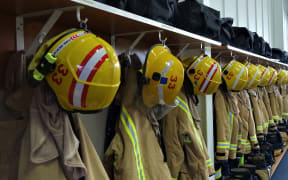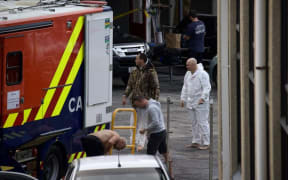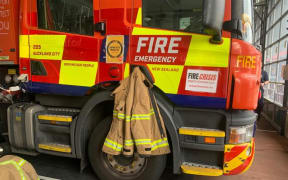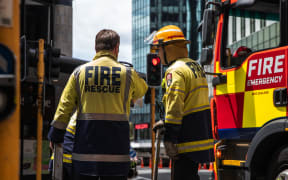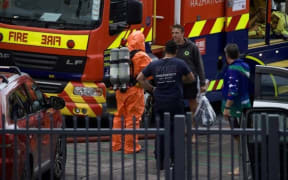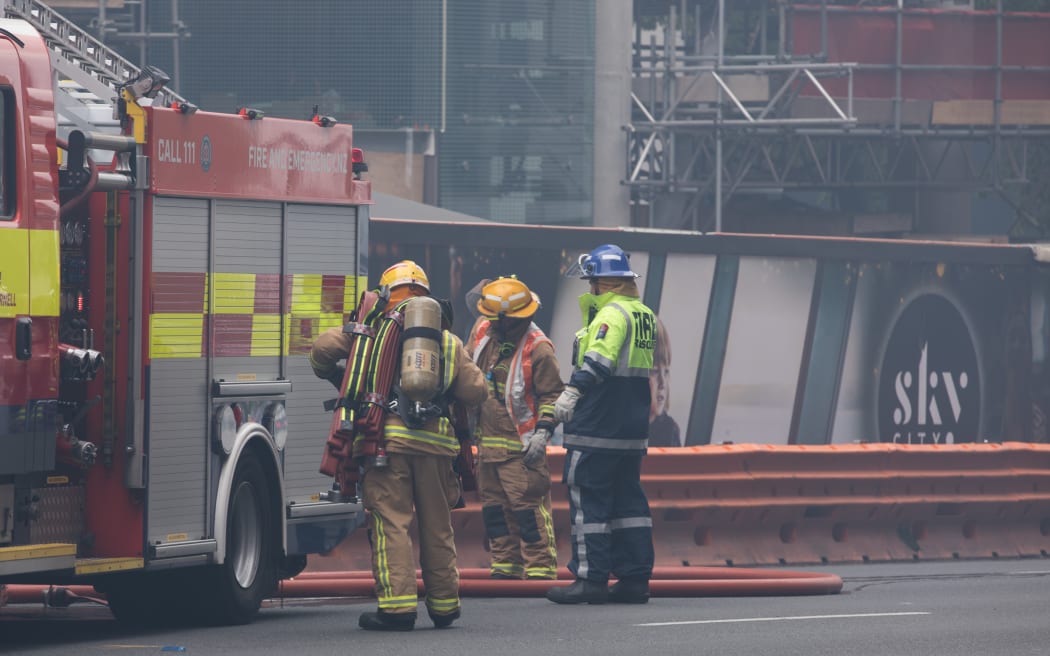
Air tanks are used by emergency services at major incidents, such as the International Convention Centre fire in 2019 (pictured). Photo: RNZ / Cole Eastham-Farrelly
An asbestos scare around air tanks for emergency crews has spread to encompass five agencies including police and defence.
Fire and Emergency found out last month an asbestos roof had contaminated the air intake for a compressor used to fill tanks at Auckland central fire station.
The worry was if any asbestos fibres got into the compressor and into breathing apparatus.
FENZ filled 2100 air tanks from the compressor dating back to 2018. Initially, FENZ downplayed a union suggestion other agencies were affected, but now said it also filled 110 air tanks for police, defence, Customs and Mine Rescue.
"We contacted agencies after internal checks identified we had filled a limited number of cylinders over a four-year period," deputy chief executive organisational strategy and capability development, Sarah Sinclair, said in a statement.
Police said today they had quarantined and tested breathing apparatus and briefed staff who might have been affected. Six tanks had so far tested negative.
Customs said it was in contact with 24 staff who may have been affected. "We continue to keep our staff fully-informed and supported as they are understandably concerned about this notification and what it might mean for them," it told RNZ today.
Mine Rescue said it had no exposure. Defence has not commented so far.
FENZ is working out how to test the old compressor, used at Auckland from 2015 to 2022, and which had been shifted to Whenuapai, but is now decommissioned.
It had laid out a draft plan to the firefighters' union, Sinclair said. The union said its consultant had yet to advise on the proposed testing method, which was not straightforward.
A single air tank filled by Auckland central's new compressor had also tested negative. FENZ said it would also be testing this new compressor.
The police said once it was alerted, it "immediately took a number of precautionary steps".
"We quarantined all potentially effected cylinders and breathing apparatus and got these tested by an external supplier," spokesperson Mike Johnson said.
"A meeting was arranged for all potentially impacted staff to be briefed on the situation and have the opportunity to ask any questions of our medical advisor."
Testing of cylinders and the air in them proved negative, he said.
Customs said FENZ alerted it last month. It usually used its own suppliers, but had established that six air cylinders were filled at Auckland fire station in mid-2021, resulting in "potential exposure" to 24 staff at that time.
Generally, asbestos exposure takes years to show impact on people's health.
"While the potential exposure is still to be confirmed, Customs is taking an early awareness and intervention approach," said group manager of intelligence, investigations and enforcement Terry Brown.
Staff had been given access to a specialist occupational medical consultant and to early medical baseline monitoring. Unions were involved. "Customs is now awaiting the remaining testing results from FENZ," Brown said.

